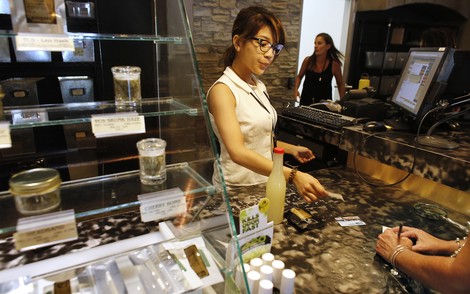Your podcast discovery platform
Curious minds select the most fascinating podcasts from around the world. Discover hand-piqd audio recommendations on your favorite topics.

piqer for: Health and Sanity Boom and bust Climate and Environment
Melissa Hutsell is an award-winning freelance journalist with a deep rooted passion for both community and international journalism. She was born and raised in Northern California, and has lived, studied, worked, and traveled in more 20 different countries. Melissa holds a Master's degree in Global Journalism from City University London, as well as degrees in Journalism and Globalization from Humboldt State University. Though she covers various topics as both a writer and editor, she specializes in business and cannabis journalism.
More Choose Cannabis For Wellness, Not Intoxication
A study published in late 2017 found that 90 percent of cannabis consumers ingest the plant to enhance their health, not to get high.
These findings may come as no surprise to some; yet, they are contrary to popular perceptions.
Robert Miner, founder of the firm that conducted the study (Miner and Co.), told Leafly: “Even those shows that highlight cannabis use as part of the culture du jour, characters who consume are still portrayed as stumbling and bumbling ... That continues the propagation of the retro inept-stoner stereotype. It doesn’t reflect the progress that’s actually happening.”
The firm surveyed adults residing in legal U.S. states between the ages of 25—39. They found that: one-in-ten use cannabis to get high; nine-in-ten use it as part of their regular health and wellness regiment; and 82 percent of respondents prefer the plant to other substances like alcohol or pharmaceuticals. More than 80 percent reported full-time employment, and 65 percent of participants, whose average age was 30, reported annual incomes of $75,000 or higher (see article's infographic for more info).
Furthermore, Miner said that the political affiliation of respondents was virtually split: “Cannabis is politically agnostic.” Another notable takeaway: adults say cannabis is a key way they connect with others.
The survey also explored brand design, packing, and product consistency. These factors, as it turns out, are important to consumers who want more than access — they want responsible, healthy products designed for their lifestyle.
